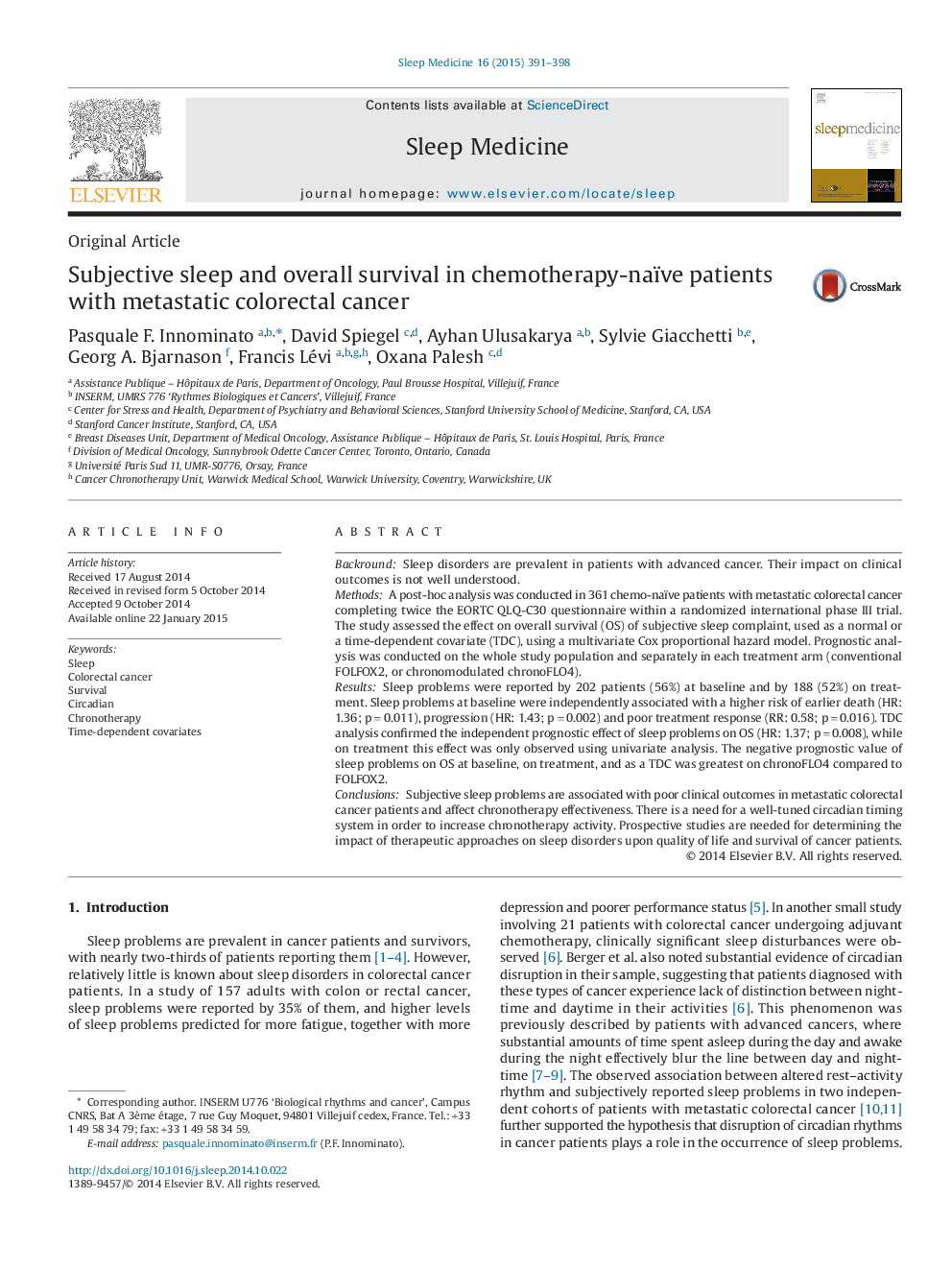| کد مقاله | کد نشریه | سال انتشار | مقاله انگلیسی | نسخه تمام متن |
|---|---|---|---|---|
| 6060956 | 1200246 | 2015 | 8 صفحه PDF | دانلود رایگان |
- For people with cancer, limited data exist on the prevalence and impact of sleep problems.
- Sleep problems before chemotherapy are associated with shorter overall survival.
- Sleep problems during treatment might hamper chronomodulated chemotherapy efficacy.
BackroundSleep disorders are prevalent in patients with advanced cancer. Their impact on clinical outcomes is not well understood.MethodsA post-hoc analysis was conducted in 361 chemo-naïve patients with metastatic colorectal cancer completing twice the EORTC QLQ-C30 questionnaire within a randomized international phase III trial. The study assessed the effect on overall survival (OS) of subjective sleep complaint, used as a normal or a time-dependent covariate (TDC), using a multivariate Cox proportional hazard model. Prognostic analysis was conducted on the whole study population and separately in each treatment arm (conventional FOLFOX2, or chronomodulated chronoFLO4).ResultsSleep problems were reported by 202 patients (56%) at baseline and by 188 (52%) on treatment. Sleep problems at baseline were independently associated with a higher risk of earlier death (HR: 1.36; pâ=â0.011), progression (HR: 1.43; pâ=â0.002) and poor treatment response (RR: 0.58; pâ=â0.016). TDC analysis confirmed the independent prognostic effect of sleep problems on OS (HR: 1.37; pâ=â0.008), while on treatment this effect was only observed using univariate analysis. The negative prognostic value of sleep problems on OS at baseline, on treatment, and as a TDC was greatest on chronoFLO4 compared to FOLFOX2.ConclusionsSubjective sleep problems are associated with poor clinical outcomes in metastatic colorectal cancer patients and affect chronotherapy effectiveness. There is a need for a well-tuned circadian timing system in order to increase chronotherapy activity. Prospective studies are needed for determining the impact of therapeutic approaches on sleep disorders upon quality of life and survival of cancer patients.
Journal: Sleep Medicine - Volume 16, Issue 3, March 2015, Pages 391-398
